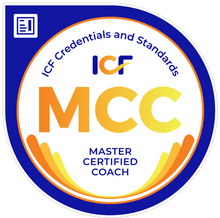Is it time for a new leadership challenge?
Have you ever had the feeling that you are in a role that doesn’t challenge you? You know the feeling…. Bored of going to work, think the boss isn’t half as good as you, getting frustrated with things that don’t go your way? As you lose motivation there is a danger of spiraling down into strained relationships and declining performance. Not a great place to find your next leadership role.
Well maybe its time to pause and reflect on what your key strengths really are, and how others experience you in the workplace.
A client of mine, Edith, came to me expressing many of these frustrations. She’s a qualified and experienced accountant and was working in the Charity sector as a part-time finance manager. Her relationships with the CEO and some of the Board trustees were becoming difficult and it seemed that her ideas and strategic thinking were not well received. As a result she was losing confidence at her ability to communicate well and perform at senior levels.
To start our work I asked Edith to complete a Myers-Briggs Questionnaire so that she could develop greater awareness of her own personality preferences. We looked at the Personal Impact Report together and identified her key strengths of when she was operating at her best. She was also then able to see how her communication style may be causing friction in her work relationships. During our conversations Edith began to realize that she could adjust and flex her style for better results but that fundamentally she should start to harness her considerable strengths into a role that would make better use of them.
A few months later and Edith has a new role as a full-time Finance Director. She has a team and budget to manage and is heavily involved with the CEO and Board of Trustees in developing the new 5-year strategy. It’s a satisfying and challenging role and Edith has learnt how to work in a more consultative and supportive way so that her ideas are heard and acted upon in the Boardroom. In a short time Edith has learned some simple techniques and behaviours that have been transformational for her on her leadership journey.
If you are feeling under-utilised at work but unsure if you have the leadership skills for a more senior role then take some time to reflect on your personal development. It may be time to rethink everything you've ever learned about how to succeed in your professional life.





